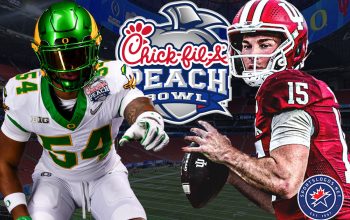
As first reported by NFL Network’s Tom Peliserro, NFL owners approved a proposal during their annual meetings in Phoenix on Tuesday that will allow players to wear the No. 0.
The Philadelphia Eagles submitted the proposal last month, citing the lack of available numbers in the single digits after the league relaxed its restrictions in 2021, allowing running backs, wide receivers, tight ends, linebackers and defensive backs to wear those numbers.
Anyone other than offensive and defensive linemen are now permitted to wear the No. 0, including kickers and punters. They were previously restricted to Nos. 1-19, but the amendment to Rule 5, Section 1, Article 2 also expanded their range to Nos. 0-49 and Nos. 90-99.
The first player to announce that he would wear No. 0 was Jacksonville Jaguars wide receiver Calvin Ridley, while New York Giants wideout Parris Campbell has followed suit. Others hinting at a change include Dallas Cowboys linebacker Micah Parsons.
As we mentioned last month, the last player in the NFL to wear No. 0 during a regular-season game was former New Orleans Saints safety Obert Logan in 1967. The league introduced a jersey numbering system in 1973, which outlawed the use of the No. 0 and No. 00.
The amendment to Rule 5, Section 1, Article 2 does not include the No. 00, which was last worn by former Houston Oilers wide receiver Ken Burrough (1970-81), as he and former Oakland Raiders center Jim Otto (1960-74) were grandfathered in.
The NFL now falls in line with the NCAA, which has allowed players to wear the No. 0 since 2020. That change was the result of the increasing popularity in single-digit numbers, as well as the prevalence of an offensive and a defensive player wearing the same number on the same team.











